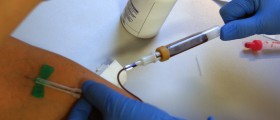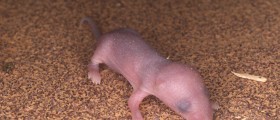
To make this study even more interesting, the researchers from the University of Pennsylvania studied the offspring of male mice that were exposed to stress in the womb. Since mouse fathers don't participate in childrearing at all, this means that the link is genetic... nature, rather than nurture. The original mothers were exposed to stressful, but painless situations like frequent moving of cages, fox odor, and wet bedding. "If fathers can pass it to sons, then we know some mark has to be found in the sperm," said Tracy Bale, the lead author of this study. Bale is an associate professor of neuroscience at Penn's School of Veterinary Medicine, and is also associated with the psychiatry department at Penn's Perelman School of Medicine.
The study is an example of epigenetics the study of how genes can react to certain situations, and can be altered for many generations. The question is what this study says about "stress genes" in humans. This is not the first study of its type, though it provides interesting insights. A previous Danish study already found a link between schizophrenia and a mother's exposure to high stress levels during the first trimester of pregnancy. One thing is clear humans are only just beginning to learn about the real impact of individual circumstances on genes, and on future generations.















_f_280x120.jpg)

Your thoughts on this
Loading...